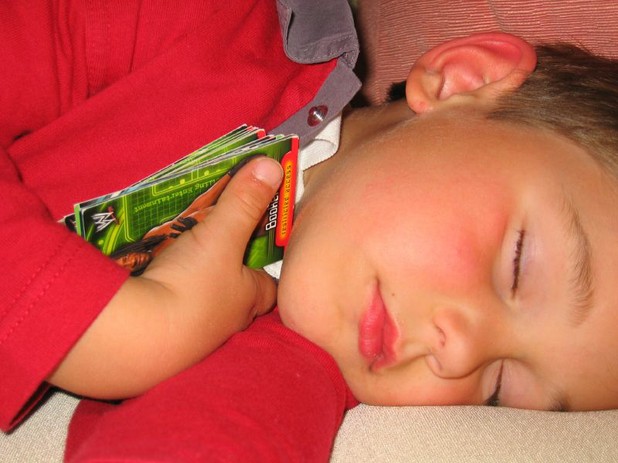- Story Highlights
-
- Children: Who have sleeping problems are at risk to become adults with drug or drinking problems.
Children with Sleeping Problems Are at Risk of Substance Abuse as Young Adults
Comments (1)Children who can’t sleep well suffer from overtiredness and impulse control problems. These children tend to start experimenting with drugs and alcohol at an earlier age and are at greater risk of substance abuse problems in early adulthood.
About 1 in 10 parents worries about the sleeping habits or sleeping problems of at least one of their children. Unfortunately, childhood sleep problems are on the rise and sleeping problems in early childhood increase the risks of substance abuse problems in young adulthood.
Researchers at Idaho State University enlisted 384 study participants in their late teens and collected information from each teen about sleeping patterns and substance use at ages 3-5, 6-8, 9-11, at each year from 11 to 17 and at 18 to 20.
They found that
- Kids who had trouble sleeping at ages 3-5 had a greater likelihood of sleeping problems throughout their teenage years and a greater likelihood of drug and alcohol problems at ages 18 to 21.
- Children who were overtired as young children used greater numbers of drugs in their late teen years. These overtired children were also more likely to binge drink, blackout, have alcohol abuse problems and drive while intoxicated.
Children who have sleeping problems and who suffer from overtiredness often suffer from impulse control and behavioral problems as a result. These deficits can continue into adolescence and so can lead to an earlier age of initiation of drug and alcohol use and a greater likelihood of later in life substance abuse problems.
Lead researcher Maria M. Wong commented on the significance of her study, saying, “Childhood sleep problems appear to have both direct and indirect effects -- via sleep trouble and response inhibition in adolescence -- on subsequent substance-related outcomes. Additionally, our previous work showed childhood sleep problems were associated with early onset of alcohol and drug use…This suggests a marker of alcohol problems that may be detectable very early in the life course."
The full research can be read in the June 2010 issue of Alcoholism: Clinical & Experimental Research


